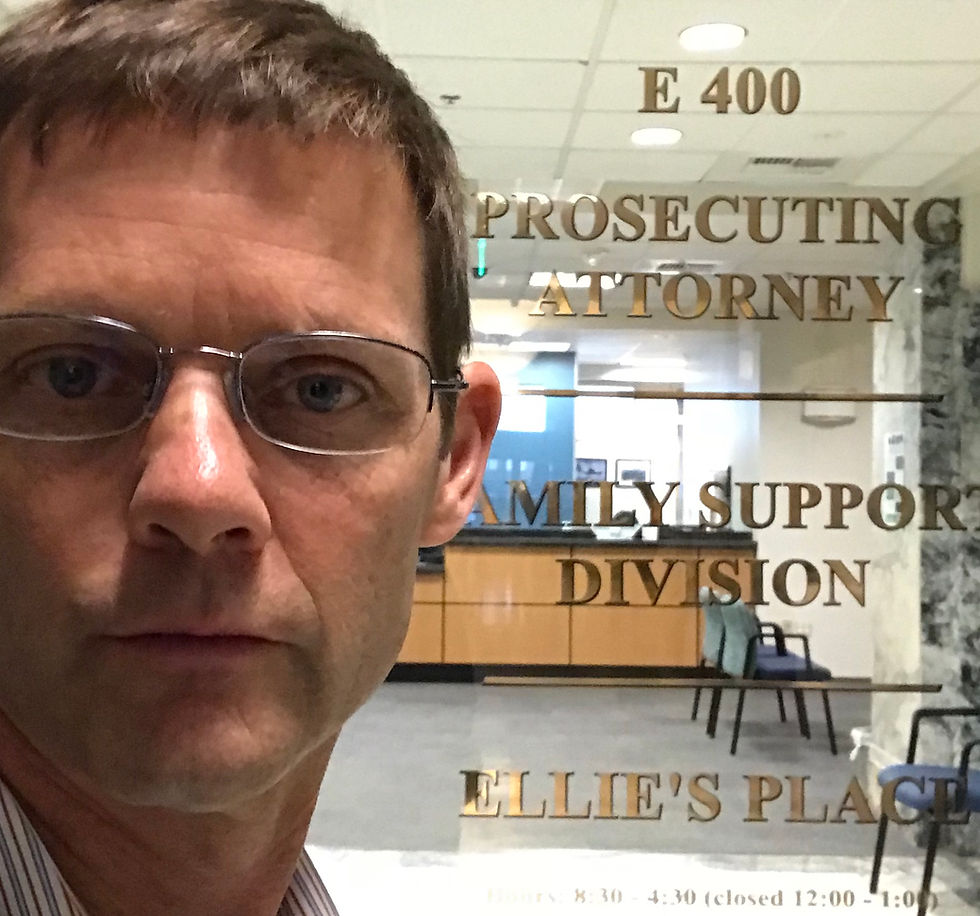Civil Justice when there is no Criminal Justice
- Scott Semrau

- Aug 5, 2018
- 3 min read

When a case involves domestic violence I often work with criminal prosecutors. Today I was at Ellie’s Place in the King County District Attorney Office, Family Support Division. Ellie’s Place serves as a resource center for victims of domestic violence, sexual abuse and firearm assaults. Unfortunately, today, the prosecutors were explaining to my client why they couldn’t prosecute a case against her spouse. We had already obtained a Domestic Violence Protective Order, so even though she and her children were protected, it was disappointing to learn that the State wasn’t able to prosecute criminal charges. The Criminal Justice system is often the first place that people look to for protection, but in reality, it is the Civil Justice System that just as often gives victims safety and protection.
Criminal prosecutors can effectively use bond conditions and criminal sentences to protect victims by limiting contact and requiring perpetrators to undergo counseling, education and monitoring through probation supervision. But anyone who knows the criminal justice system knows that the promise of protection and Justice can go unkept when the case is too risky, difficult or expensive to prosecute.
Probably the most common reason for no criminal prosecution is that the conduct was not physically violent. Domestic violence is often subtle and slow and it is often verbal. Words alone, especially over a long period of time can be devastating to a partner or a child. When one parent purposefully undermines the other parent’s authority or tells the children that what one parent says is unimportant, this too is domestic violence—but there is no crime committed. Lack of proof is another reason a case may not be prosecuted. The legal standard of proof in a criminal prosecution is “beyond a reasonable doubt,” and if the “proof” is old or just one person’s word against another, cases often get dismissed.
I often hear the argument that children don’t need protection if they are not the victims of the domestic abuse. For instance, it may be that children were just witnesses to one parent’s acts of domestic violence. But that is simply not true, multiple studies have consistently demonstrated the short and long-term impact of domestic violence upon children, even when they are not the direct recipient of the domestic violence.
Perhaps the most important point to make here is that children do not have to be the direct recipients of violent acts to be seriously harmed by domestic violence. Children are immediately harmed and continue to be harmed by an abusive parent’s domestic violence even after the abusive is ended. Studies show that children who observe one parent abusing the other experience traumatic effects similar to those experienced by children who are the victims of abuse themselves. The long-term effects are mental health problems such as depression, anxiety and lack of self-esteem. Children who witness domestic violence lack self-confidence, choose abusive partners themselves, and are overall not nearly as effective as children who are not exposed to domestic violence.
As a result of no criminal prosecution, each year thousands of people turn to the Civil Justice System to seek protection. Restraining Orders and Domestic Violence Protection Orders as well as restrictions contained in a parenting plan are the most commonly used tools of protection.
As an attorney representing a spouse or children affected by domestic violence, I work to educate the Judge on the risks of physical, sexual and emotional abuse that often come with a child’s contact with an abusive parent. If the Judge finds that domestic violence has occurred, then consideration must be given to a safety plan that can result in a bar to all contact between the abusive parent and their partner and their children. Domestic violence protective orders can be short term and long term—a protection order can even be permanent. Parenting Plans are fantastic tools for limiting an abusive parent’s contact with children.
When there is domestic violence, the first call should be to the police. But if you are worried about calling the police or the police have not helped you, then the Civil Justice System can also protect you and your children. I have listed several websites that offer great information about domestic violence and its impact on children. Most of these resources, including legal help with a family law case are free to victims of domestic violence. Best Wishes.
King County Bar Association, Free Family Law Lawyer for Domestic Violence Victims with Children at risk: https://www.kcba.org/For-the-Public/Free-Legal-Assistance/Family-Law-Mentor-Program
Coalition for Ending Gender Based Violence: https://endgv.org/
Harborview Center for Sexual Assault and Traumatic Stress: http://depts.washington.edu/hcsats/
King County Sexual Assault Resource Center: https://www.kcsarc.org/
Seattle City Resources for Victims of Abuse: http://www.seattle.gov/cityattorney/crime-victim-assistance/domestic-violence-help/support-agencies
Washington Coalition of Sexual Assault Programs: http://www.wcsap.org/
National Child Traumatic Stress Network: https://www.nctsn.org/





Comments